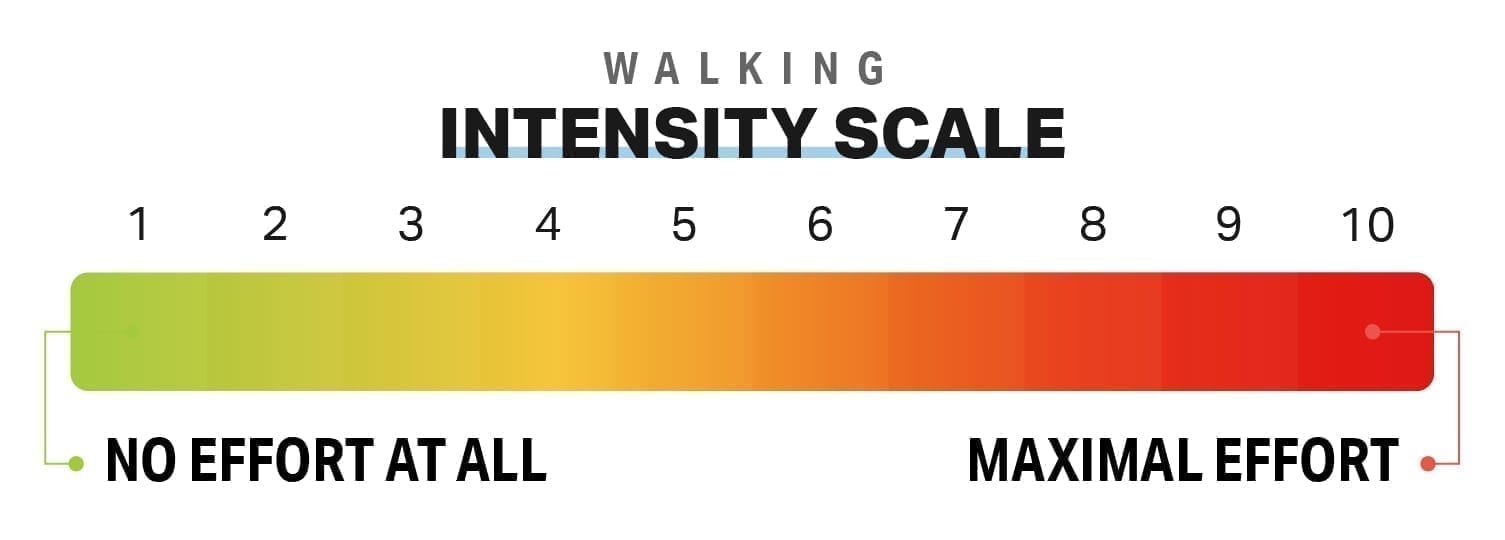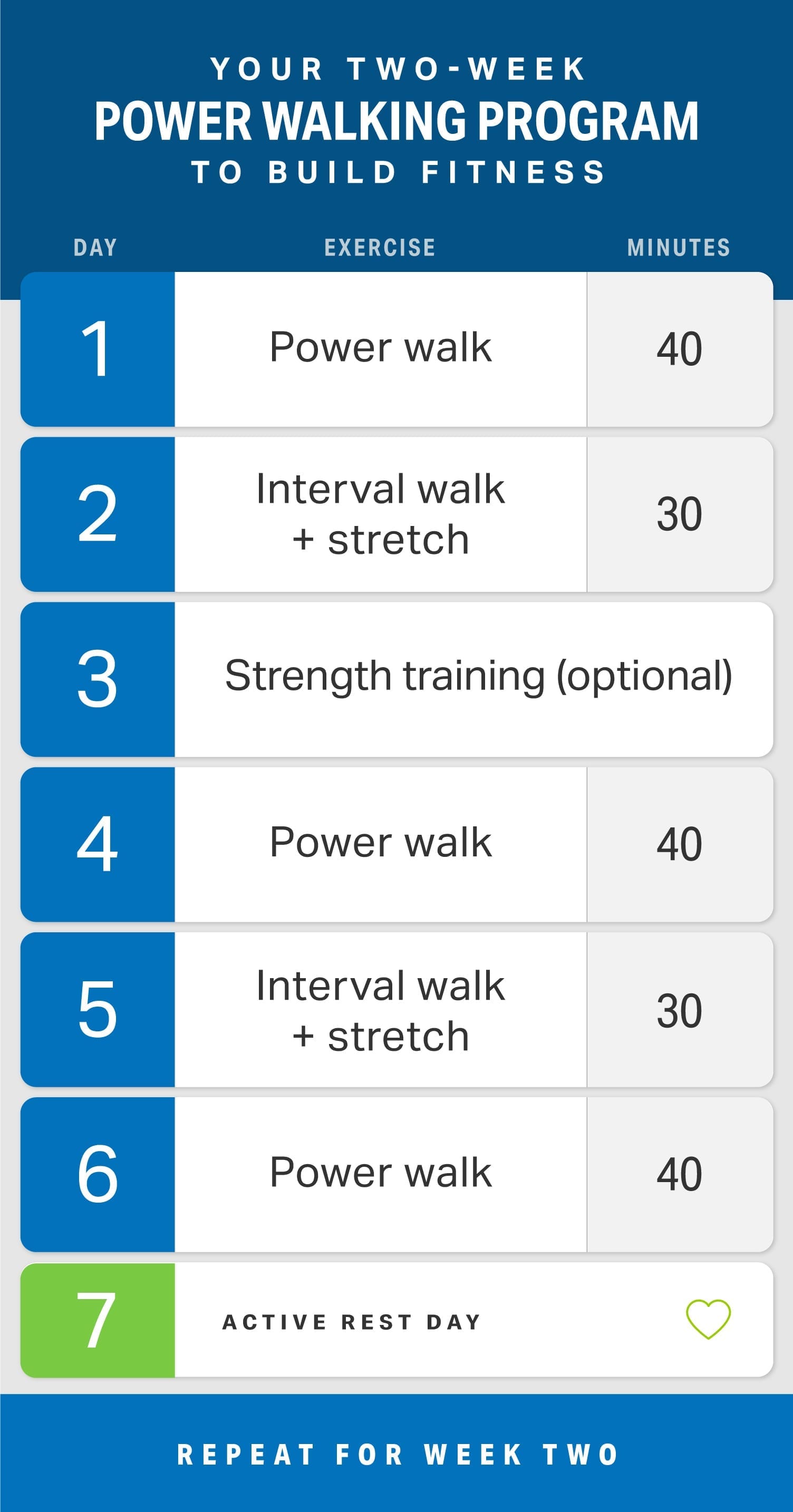
The power of a good, brisk walk is a great starting point if you’re looking to improve your health. It offers numerous health benefits, including a reduced risk of heart disease, lower body mass index and waist circumference, just to name a few. Walking is also the easiest form of exercise you can do — all you need to get started is a good pair of walking shoes.
In the spirit of keeping things simple, we’ve put together this two-week plan to help you cultivate a consistent walking habit. Simply follow the suggested weekly schedule below and feel free to adjust and adapt it to best meet your needs. For example, you can easily move your strength training day or shorten your session if time is tight. Even a 10-minute walk offers great benefits and something is always better than nothing.
YOUR WALKING GUIDE

POWER WALK (40 MINUTES)
Begin with an easy, 5-minute walk to warm up your body, then maintain a brisk, steady, walking pace (intensity level 5–6) for 30 minutes. Cool down for about 5 minutes, moving at an easy pace to let your breathing and heart rate recover.
INTERVAL WALK (30 MINUTES)
While this plan is primarily focused on power walking, adding a weekly interval session is an excellent way to help improve your aerobic capacity and get even more out of your power walks.
To perform your interval session, start at an easy pace with a 3-minute walk to warm up your body, then use this 3-2-1 interval structure repeated a total of 4 times for 24 minutes of interval work:
- 3 minutes: Walk at a brisk, but steady, pace (intensity level 5; you should be able to talk but your breathing will be quick).
- 2 minutes: Amp up your speed and intensity for a stronger, but still steady, pace (intensity level 7; you should be able to answer short, brief questions, not carry on a full conversation).
- 1 minute: Power up your pace as fast as you can, pumping your arms quickly to propel you faster (intensity level 8; this should feel very difficult, but manageable for 60 seconds).
Cool down for about 3 minutes at an easy pace then perform these simple, total-body stretches to wrap things up.
STRENGTH TRAINING (20-30 MINUTES)
Perform total-body, strength-building movements using your body weight, dumbbells or resistance bands. If you’re not sure where to start, try this program or seek help from a certified trainer.
STRETCHING (3-15 MINUTES)
Stretching can be done after your walks if it’s convenient or at another time of your choosing. Focus on stretching your entire body evenly, paying extra attention and spending more time with areas that may be tight or stiff (for more stretching tips click here).
ACTIVE REST DAY
Participate in any activity you enjoy that keeps you moving (other than walking) such as yoga, swimming, cycling or group fitness classes.






